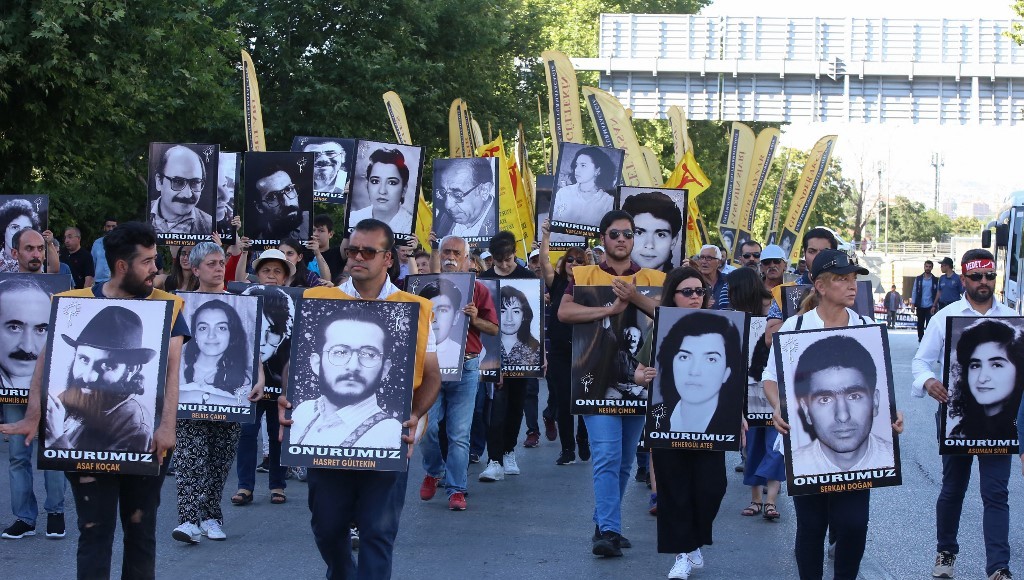The Ministry of Justice has refused to disclose the number of people serving prison sentences due to the Sivas massacre in July 1993 on the grounds that the issue “does not concern the public,” the Stockholm Center for Freedom reported, citing the Deutsche Welle Turkish service on Thursday.
A DW reporter had sent the question to the ministry under the right to information, a provision in Turkish law that enables individuals to access government-held information.
The ministry’s General Directorate of Prisons and Detention Houses responded by claiming that the inquiry fell beyond the scope of the law as the information concerned only the institution itself.
One of the major political incidents of the 1990s, the massacre was a deadly arson that led to the death of 35 people, mostly members of the Alevi sect, who were meeting in a hotel in Sivas. The building was torched by an angry mob who gathered outside in reaction to an event held by left-wing Turkish intellectual Aziz Nesin, who was hated by religious Sunnis in Turkey as he had attempted to publish Salman Rushdie‘s controversial novel “The Satanic Verses.”
Thirty-three attendees, two hotel staff members and two protesters died in the fire. Nesin was able to escape because the attackers initially failed to recognize him.
Last month an Ankara court ruled to drop legal proceedings against three defendants who were being tried in absentia for their alleged role in the massacre, citing the expiration of the statute of limitations.
In a controversial move President Recep Tayyip Erdoğan prior to the hearing used his presidential power to pardon 78-year-old Hayrettin Gül, who was given an aggravated life sentence for his role in the Sivas massacre, for reasons of health.
This was the second time Erdoğan has used his presidential power to pardon a person convicted of involvement in the 1993 massacre. In 2020 the president also pardoned then-86-year-old Ahmet Turan Kılıç, who had been given an aggravated life sentence, also for reasons of health.
The dropping of charges and the presidential amnesty have caused a public outcry, and rights groups have denounced it as another case of impunity.
A number of lawyers who defended the suspects in the massacre later became politicians in Erdoğan’s ruling party.
